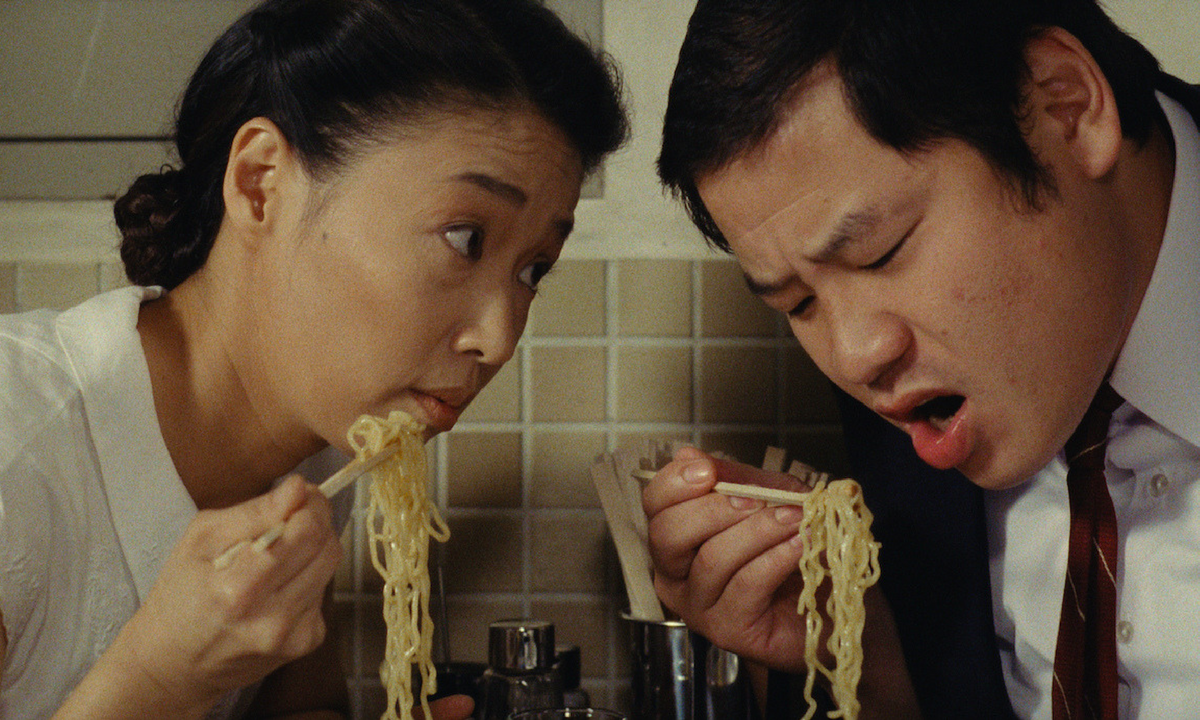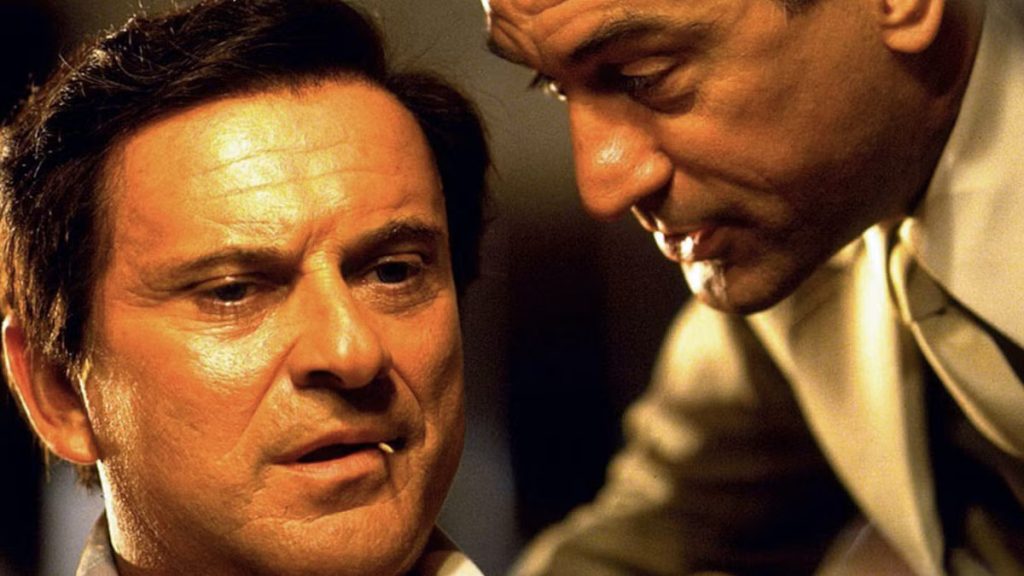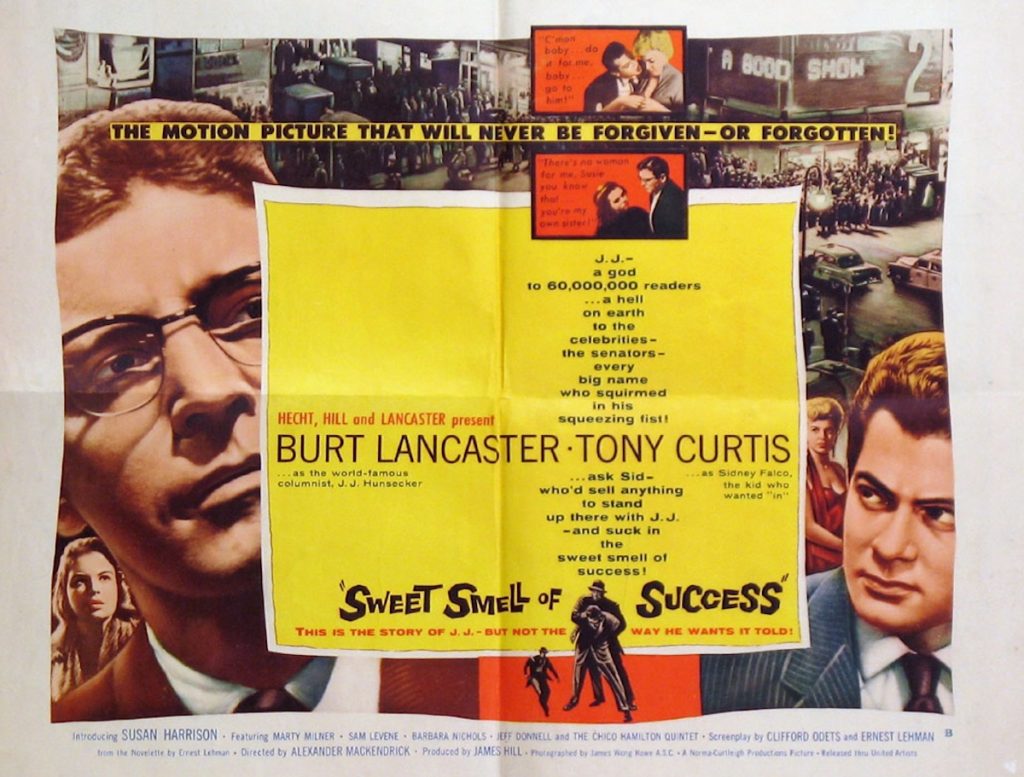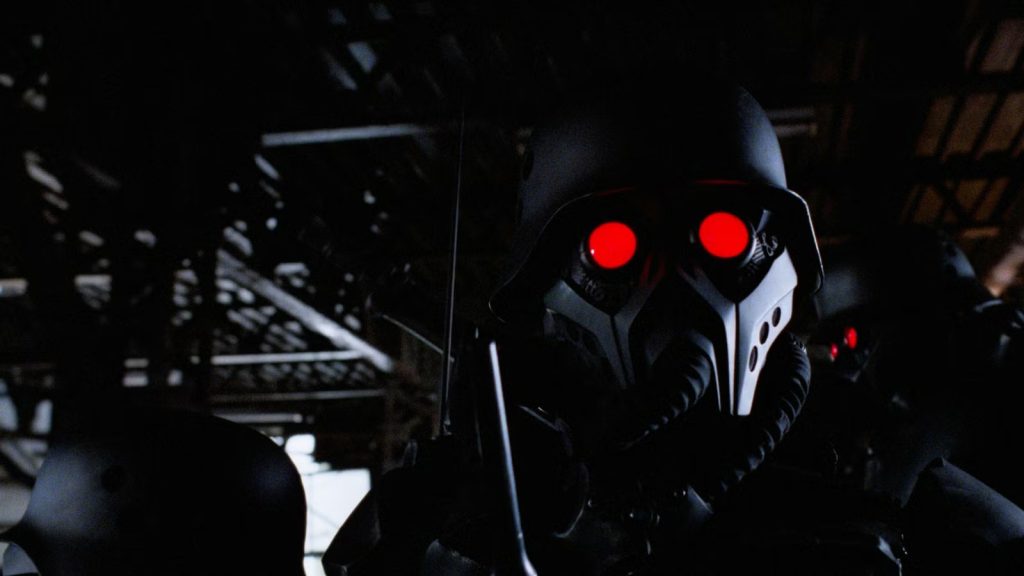Poetry might be the food of love for Jane Austen’s Mr. Darcy, but for the characters of director Juzo Itami’s Tampopo, it’s much simpler. For these men and women, whether chef or gangster, truck driver or con artist, the quickest way to the heart is a really good bowl of ramen. Released in Japan forty years ago this week, Itami’s comic masterpiece is a feast for cinephiles and gourmands alike. Just don’t watch it on an empty stomach.
Tampopo’s rambunctiousness has the spirit of a young upstart, but Itami had already been in the business for a while when he made it. He began his career as an actor, making his onscreen debut in 1960. While working with Nagisa Ōshima on Sing a Song of Sex in 1967, he met actress Nobuko Miyamoto, who would become his second wife and frequent collaborator. He didn’t direct his first film, The Funeral, until 1984 when he was fifty-one. It was a popular release in his native country, earning him three Japanese Academy Awards. But it was his next, Tampopo, featuring Miyamoto in the titular role, that would cement his international reputation.
Like all of Itami’s work, Tampopo is a loving satire of Japanese society, specifically how the post-war influx of American culture had creeped into it in ways both invigorating and nefarious. Famously he referred to the film as a “noodle Western,” which can be seen in the styling of the character Goro (Tsutomu Yamazaki) who with his cowboy hat and appraising squint looks like he stepped off a Clint Eastwood set. But Itami plays fast and loose with genre, drawing in everything from crime films and melodramas to training montages and visual references to Psycho. Appropriately enough, it’s a real smorgasbord. The characters follow the demands of their appetites to ends both logical and outré, and audiences are invited to do the same.
We start in a movie theatre, as a gangster in an impeccable white suit (Kōji Yakusho) and his moll (Fukumi Koroda) have a full picnic meal delivered to them. “I hate when people crinkle their potato chip bags,” he fumes before approaching the camera and admonishing the viewer not to interrupt once the film starts. With that we’re off, as Itami alternates the pace between zippy and leisurely depending on the story being told at the moment.
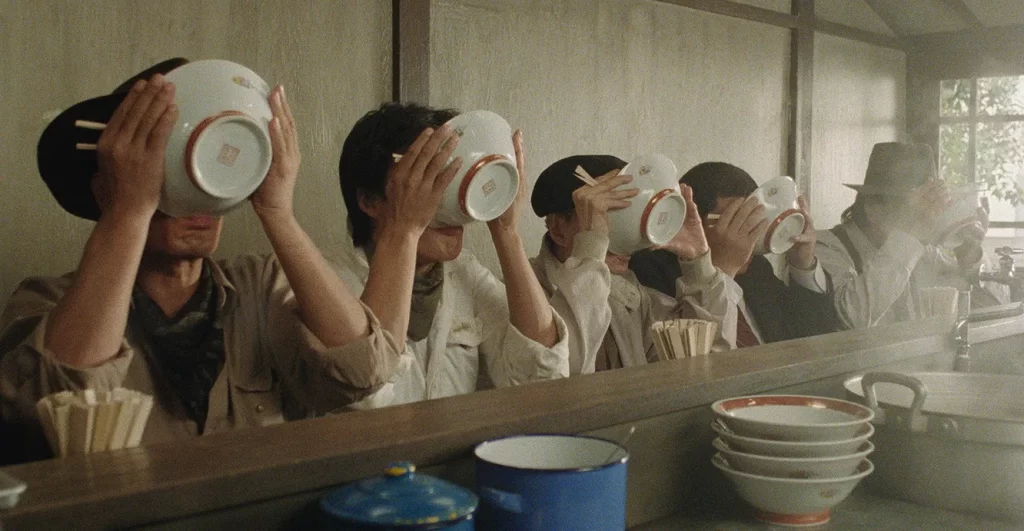
There is a central one: late on a rainy night, truckers Goro and Gun (Ken Watanabe), feeling the pangs of hunger, pull over to a noodle shop run by Tampopo, who’s recently widowed. She’s struggling with the demands of her tough-to-please clientele, including the pushy Pisuken (Rikiya Yasuoka) who wants her to sell to him. Goro, though, takes an interest in Tampopo, sensing the potential in her ramen which is “sincere but lacks character.” To help her become the best chef in town, he and Gun enlist a ragtag team to teach her the ropes, and also steal a few trade secrets along the way.
Like any good dish, though, Itami adds several flourishes to the stew, his camera picking up on background characters and following them on their own gustatory tangents. This includes but is not limited to a young women’s etiquette class learning to properly eat spaghetti, an old woman who obsessively squeezes and prods the items in a supermarket, and the white-suited gangster and moll seen at the beginning, whose erotic melding of meals and sex gives new meaning to the term “food porn.”
Itami is a generous sensualist throughout, if rarely a polite one. His heightened sound design and admiring close-ups prioritize the tactile, often messy pleasures of eating with a lustiness that might cause the fine-dining purists in the audience to blush. Noodles are slurped with abandon; oyster shells draw blood. Like his characters, Itami understands that the act of digestion isn’t just about taste or texture. Observation is a considerable portion of the enjoyment one gets out of the experience. “No wasted motion,” Goro says at one point as he and Tampopo spy on their rivals. The same could be said of Itami’s direction, which remains grounded in the corporeality of his world no matter how absurd the comedy in it gets. When the end credits roll, it’s over footage of a woman breastfeeding her infant – the simplest and purest meal one can give another.
Itami’s infectious recipe proved irresistible to audiences worldwide. Upon its 1987 release in the United States, it earned an Independent Spirit Award nomination and Best Screenplay and Director nods from the National Film Critics Association. Its influence on the culinary sphere can be seen in the number of ramen restaurants bearing the Tampopo name. Roger Ebert compared Itami’s direction to Jacques Tati’s, writing that “one humorous situation flows into another offhandedly, as if life were a series of smiles.” Tampopo’s improvisatory structure is unique in Itami’s filmography but it’s also a perfect marriage of form and content. The best meals are transportive but they’re also ephemeral. As Goro and Gun ride off into the proverbial sunset, we sense Itami reminding us to cherish the things that don’t last as much as the ones that do. There’s room for all of it at this table.
“Tampopo” is streaming on the Criterion Channel, HBO Max, and Kanopy.
